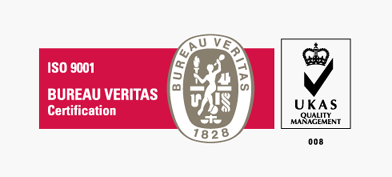A consortium of groups, led by Elbit, Israeli Military Industries, and Orbit, will begin by focusing on exploiting existing printers used to manufacture aerospace parts rather than develop new printers–but the Israeli Ministry of Economy research and technological development committee, headed by Chief Scientist Avi Hasson, has given its blessing to a project aimed at developing a 3D titanium printer to produce aviation components in the future.
 The consortium is slated to begin operations during the second half of 2015, and the work will be led by Cyclone, a subsidiary of Elbit Systems. Cyclone is the Elbit Systems design and production center for metal and composite aircraft components for aerospace companies and is tasked with building an infrastructure to design and manufacture systems for the Israeli aviation sector.
The consortium is slated to begin operations during the second half of 2015, and the work will be led by Cyclone, a subsidiary of Elbit Systems. Cyclone is the Elbit Systems design and production center for metal and composite aircraft components for aerospace companies and is tasked with building an infrastructure to design and manufacture systems for the Israeli aviation sector.
These new innovations concern systems to build the complex geometric structures needed by the aerospace industry, and the consortium includes Cyclone, Orbit, Algat, IAI, and IMI, as well as researchers from the Technion, the Institute of Metals, Afeka College, Tel Aviv University, and Ben Gurion University.
According to Hasson, the project is critical to keeping Israel up to date with 3D printing as it relates to modern manufacturing processes.
“This is a fascinating field, and we should expect it to have a substantial impact on future processes and products,” Hasson says. “It is important that Israel will enter the field of 3D printing with components that must comply with rigid quality and strength standards, as required by the aviation market.”
 The project will also focus on a cooperative effort with ATID. It’s the largest privately-owned educational network in Israel which specializes in management and operation of advanced technological schools and colleges, and it has some 25,000 students in attendance each year. Established in 1990, the group owns nine colleges and twenty high schools, and employs 1,500 professional instructors.
The project will also focus on a cooperative effort with ATID. It’s the largest privately-owned educational network in Israel which specializes in management and operation of advanced technological schools and colleges, and it has some 25,000 students in attendance each year. Established in 1990, the group owns nine colleges and twenty high schools, and employs 1,500 professional instructors.
Hasson leads the Magnet Committee, a group that provides grants for industrial concerns which pair up with academic partners on technology projects. Hasson said he expects the committee to cover up to 90 percent of the expenses for such projects which he says is critical in the long term as private industry is reluctant to take on such investments alone.
The Magnet Committee effort will be driven by a dozen business clusters and take advantage of a budget of nearly $51 million.
 Elbit is an international high-tech company that develops and supplies a range of airborne, land, and naval systems which include products for defense, homeland security, and commercial aviation applications. The company builds military aircraft and helicopter systems, helmet mounted systems, commercial aviation systems, unmanned aircraft, command, control, communications, computer, and intelligence C4I systems, and electro-optic and countermeasures systems, among other products.
Elbit is an international high-tech company that develops and supplies a range of airborne, land, and naval systems which include products for defense, homeland security, and commercial aviation applications. The company builds military aircraft and helicopter systems, helmet mounted systems, commercial aviation systems, unmanned aircraft, command, control, communications, computer, and intelligence C4I systems, and electro-optic and countermeasures systems, among other products.
Elbit Systems is listed on the NASDAQ (ESLT) and also trades shares on the Tel-Aviv Stock Exchange (TASE).









